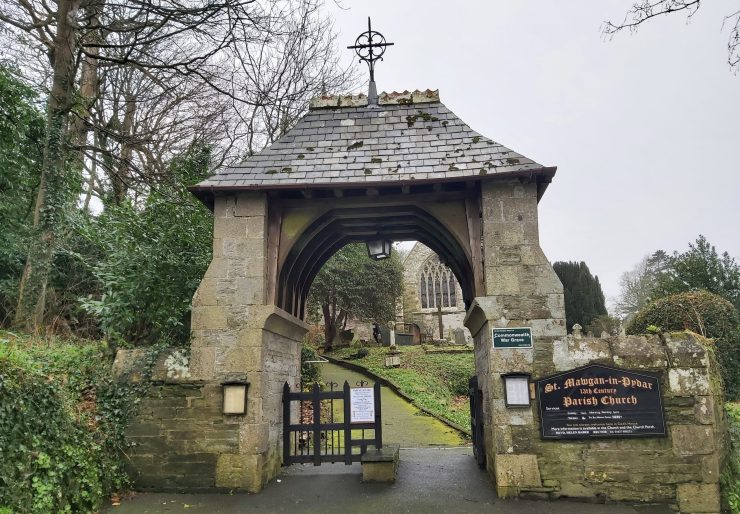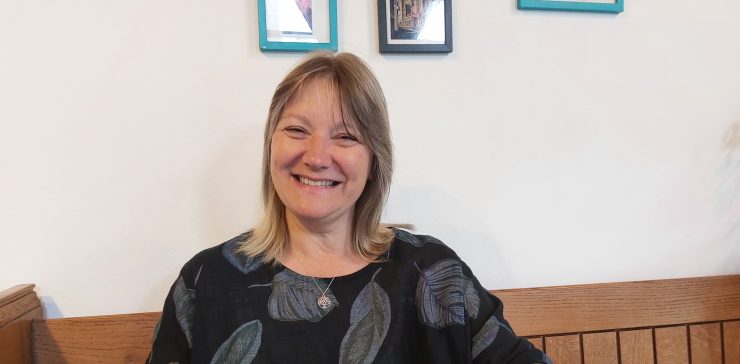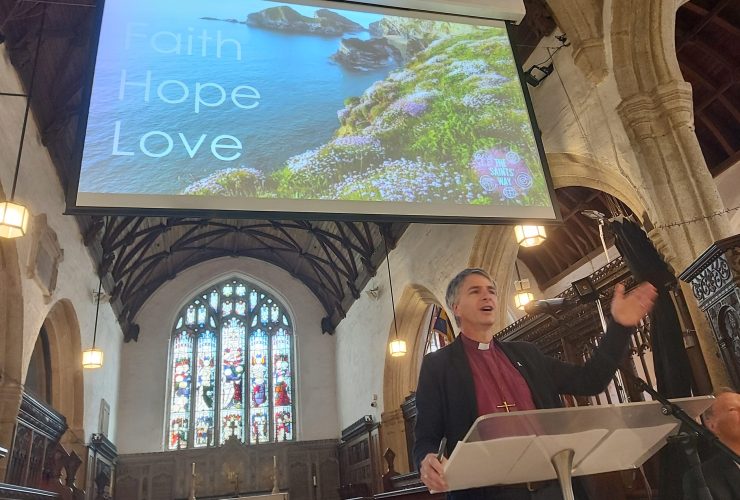Lost and found
A churchwarden at St Mawgan in Pydar and a psychotherapist by trade, Jackie Oglethorpe has for nearly twenty years been involved in the criminal justice system.
She started working as a therapist at a prison in Northamptonshire in 2005. Five years later, she became a lay community chaplain for a project based in Leicestershire and Warwickshire. From that, she joined the board of trustees of the national Community Chaplaincy Association, a charity which she now chairs, and which helps member groups to support former prisoners.
“It’s about rehabilitation, reintegration and ultimately about belonging,” she explains. “It’s about helping people to join pro-social communities – and that’s where churches and other faith organisations come in.”
She says that it’s about becoming part of positive social groups.
“You might get a guy coming out of prison who all his life has only known antisocial communities. It’s not the exclusive cause, but a lot of crime is committed because people want to belong to something. What we seek to do is to help people who don’t want to repeat that cycle to find new ways of belonging and different communities to belong to.”
Five years ago, Jackie and her husband moved to Cornwall, ostensibly to retire. They were very grateful to find themselves welcomed into their new community, and Jackie started volunteering with the South West Community Chaplaincy, returning to the kind of work she’d been doing two decades ago in the Midlands.
“I’d missed that personal contact, the privilege of being able to support someone on their journey,” she says.
Last autumn, she was asked if she’d like to take on more formal duties as a community chaplain for Cornwall.
“There are men and women leaving the prison system. And there are some who may have received non-custodial sentences. But they are all labelled,” she says. “Most of the people that come to us have lost their way and ultimately want to make amends and to have something to be proud of.”
She recalls that there’s something she often tells her audiences when she’s giving talks about her work.
“I wonder what would happen if you had to introduce yourself to me by telling me the worst thing you’d ever done in your life. What’s that going to do to how you think about meeting me in the first place, about how I might judge you?”
Jackie describes her approach as offering a combination of acceptance and challenge. “I accept who you are and what you’ve done, and I’m going to challenge you to lead a better life. So that the next time you introduce yourself to someone, you don’t have to do so with the worst thing you’ve ever done… So that you can do so with a variety of different options.”
A community chaplain will often get to know an offender while they’re still in prison. They can then be waiting for them on the day of their release.
Jackie becomes visibly emotional as she describes that fateful moment. “You stand outside a prison gate and a man walks out. He’s got a choice. He can either go to his drug dealer, or he can go to a volunteer from his local church who can help him to lead a new life. That’s exactly how it is. Drug dealer or church volunteer. We’re often standing literally within a few feet of each other.”
Once a person’s made that choice, a community chaplaincy can offer a range of support. There are nearly forty such organisations across the country. Some provide accommodation or debt advice, others give employment advice or mental health support. What they don’t do is to preach or proselytize.
“I just came from a walk with a man who got out of prison last year,” Jackie says. “He’s pretty isolated. He doesn’t have a faith. He’s full of regret for the crimes he’s committed. He feels the rejection of society very acutely.
“The first thing he ever said to me was that it’s really nice to talk with someone who knows what he did and who talks to him regardless.
“I asked him today what difference I make in taking these walks with him. He said, ‘You make a difference just by being there.’”
The Welcome Directory
The Community Chaplaincy Association works in partnership with an charity called the Welcome Directory, a database which invites faith-based communities across England and Wales to sign up to support former offenders.
The two groups provide training for individuals and communities to support people with criminal histories.
“It’s all about keeping everybody safe,” Jackie says. “There are lots of things we can do to support that.”
However, there are currently no churches in Cornwall signed up to the Welcome Directory.
“Not a single one,” Jackie says.
But the South West Community Chaplaincy does have a number of volunteers working across Cornwall.
“There’s a real need, and the people responding are doing an amazing job. It’s a joy and a privilege. Our volunteers are so satisfied with the work they do. But, at the moment, the labourers are few.
“The good news is that we’ve recently had a couple of inquiries from churches interested in joining the Directory.
“Jesus would be out there in the community, accepting and challenging, walking alongside and being there. We’re here to look at the future not the past.”
This is a perspective echoed by the Right Reverend Rachel Treweek, Bishop of Gloucester, Anglican Bishop for HM Prisons and patron of the Welcome Directory.
“Signing up to participate in the Welcome Directory reflects our call as the Church to join in with God’s mission of reconciliation and transformation, and be people of hospitality, hope and love,” Bishop Rachel says. “My big question is why, as members of the body of Christ, would you not do this?”
The Right Reverend Hugh Nelson, Bishop of St Germans agrees. “Churches are called to be communities of hope and hospitality, especially to those most in need,” says Bishop Hugh. “The Welcome Directory is one way for Christians to show their commitment to offering this kind of care to prison-leavers, people who are so often lonely, stigmatized and vulnerable. I look forward to seeing the first church in Cornwall appear on the Welcome Directory’s map.”
The Welcome Directory’s project manager Emily Green is proud that their database has reached the milestone of 350 member communities, but believes that their work is far from done.
“We know that there are prison-leavers who could be better served, particularly in the south-west,” she says. “Welcome, acceptance and support can make all the difference for someone leaving prison. Connecting with a welcoming and accepting church has been proven to reduce re-offending rates and increase social inclusion.”
Emily recalls the words of one prison-leaver whom the directory had helped to find a local church to offer her support: “I finally felt accepted, not just by God but by the faith community too. I really believe that this acceptance was a key part in my recovery journey. It was the love of the faith community which I joined that captured me.”



